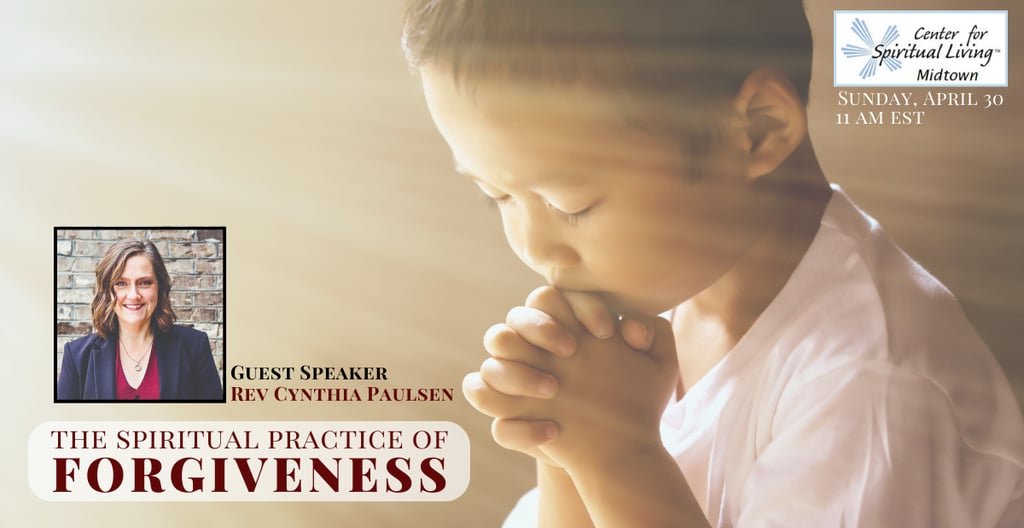

We all know forgiveness can be challenging, but there is great simplicity at the root of this spiritual principle. The simplicity is the belief that we are all Good, and we are all One, one with each other, One with God--the Good. When I think of some of the big, horrible, tragic things that people have had to forgive--mass shootings, physical and mental abuse, the Holocaust--it is hard to know where to begin with this process.
For example, Immaculee Ilibagiza survived the Rwandan Genocide in 1994 by hiding in a bathroom for three months with 7 other women. She lost her entire family—her parents, brothers, extended family, were all slaughtered. She wrote about her belief that the people who perpetrated these acts and participated in the genocide were children of God, just like her. She forgave them.
It is hard to think about an adult who does something horrible as being a child of God (or being a child at all.) It is usually easy to forgive a child. When my youngest daughter was 2 or 3 years old she had a doll that was soft and plush, with big hard plastic white eyes. One night as I put her to bed, she was resisting and swung her doll around, and those hard plastic eyes smacked me in the face, full force, right between the eyes.
My glasses broke, and I screamed and cried it hurt so much. Because I was crying and hurting, my daughter started crying. I immediately had to stop reacting to my pain, and tell her, “I forgive you, honey. You didn’t mean to hurt me.” It was easy and effortless to forgive her, even in the midst of my pain. Because she was an innocent child.
All people at their core are divinely created innocent and good. They may lose their innocence through trauma and their own painful life experiences. I am sure you’ve heard the saying before: “hurt people hurt people.” When you are struggling to forgive someone, it can be very helpful to imagine the hurt child behind the action that hurt you. You are dealing with a hurt child.
We know that forgiveness is biblical principle. Aphiemi is the Greek word for forgiveness that appears in the Bible and it means to give up, to let go, or to keep no longer. That is the spiritual principle of forgiveness. It is an opportunity to turn away from pain, releasing it and letting it go, and ultimately, turning toward God. If you think of it this way: when we are holding tightly to grudges and past hurts and regret, our hands are closed. Our fists are tight and we don’t have that open hand that is ready to receive our good. By not practicing forgiveness, we are blocking our good.
So the call to action is to consider what needs forgiving in our lives. Only you know who or what you might need to forgive. I encourage you to think about it and use this spiritual practice because you deserve all the good that is available to you.




